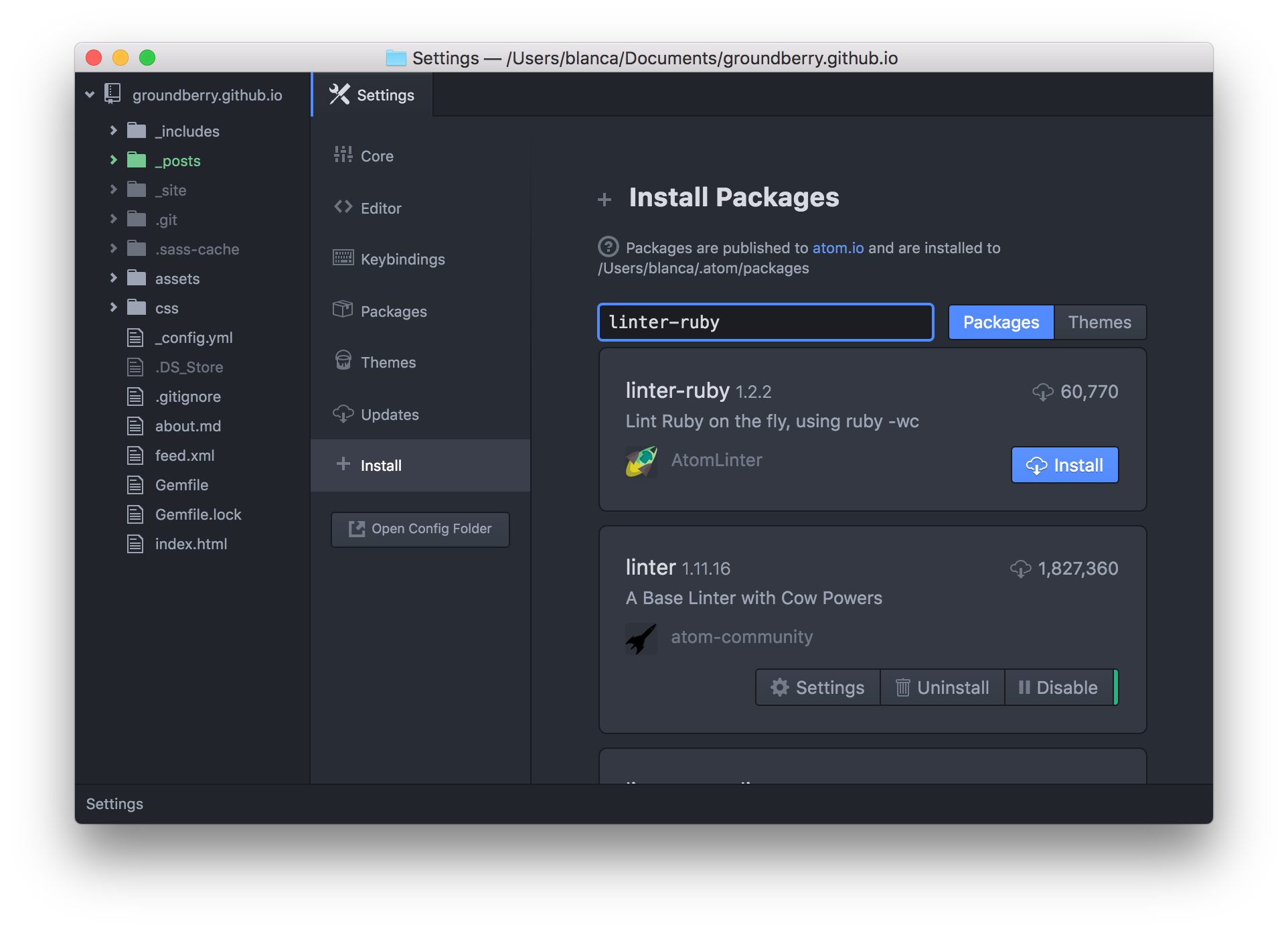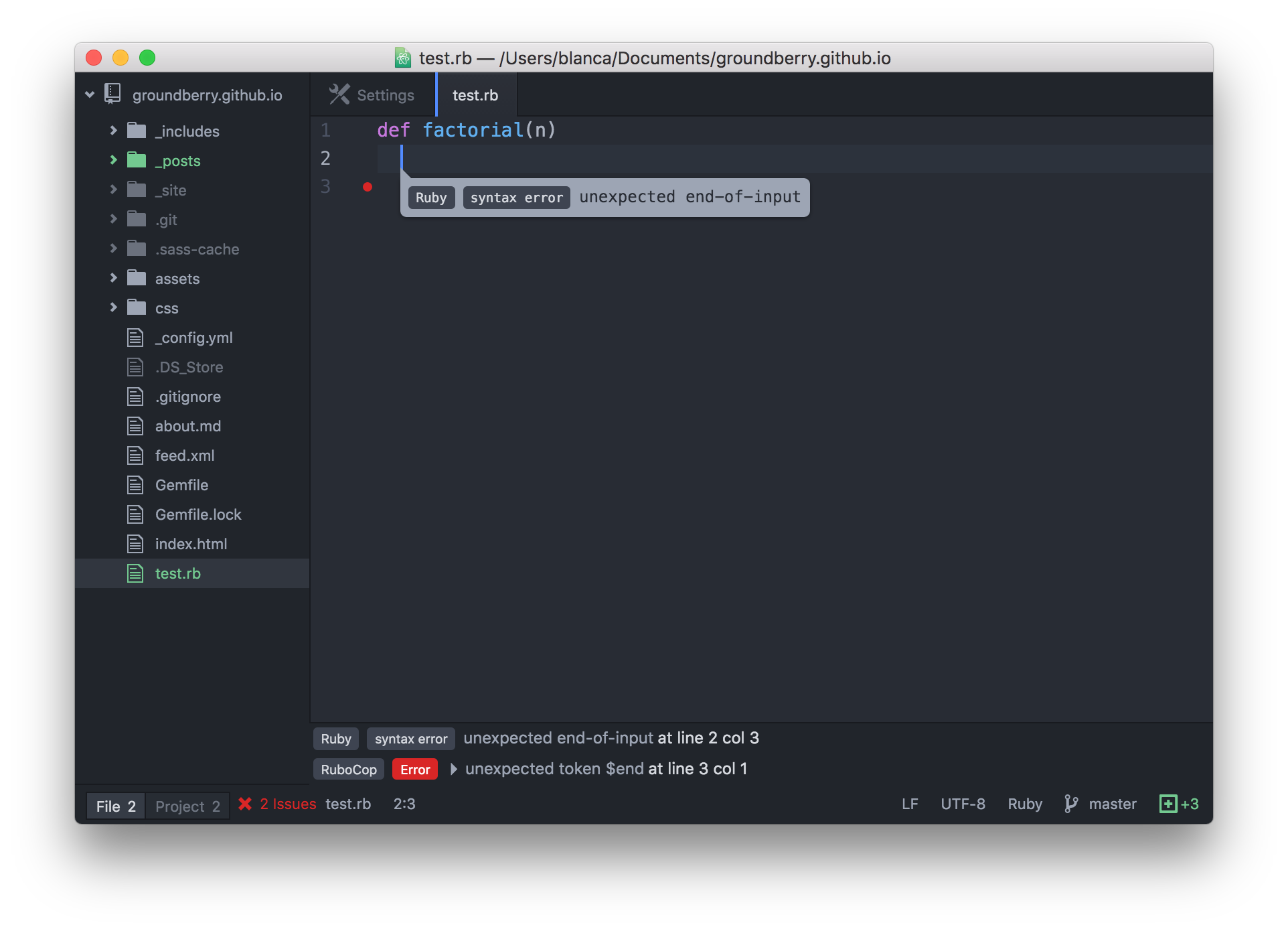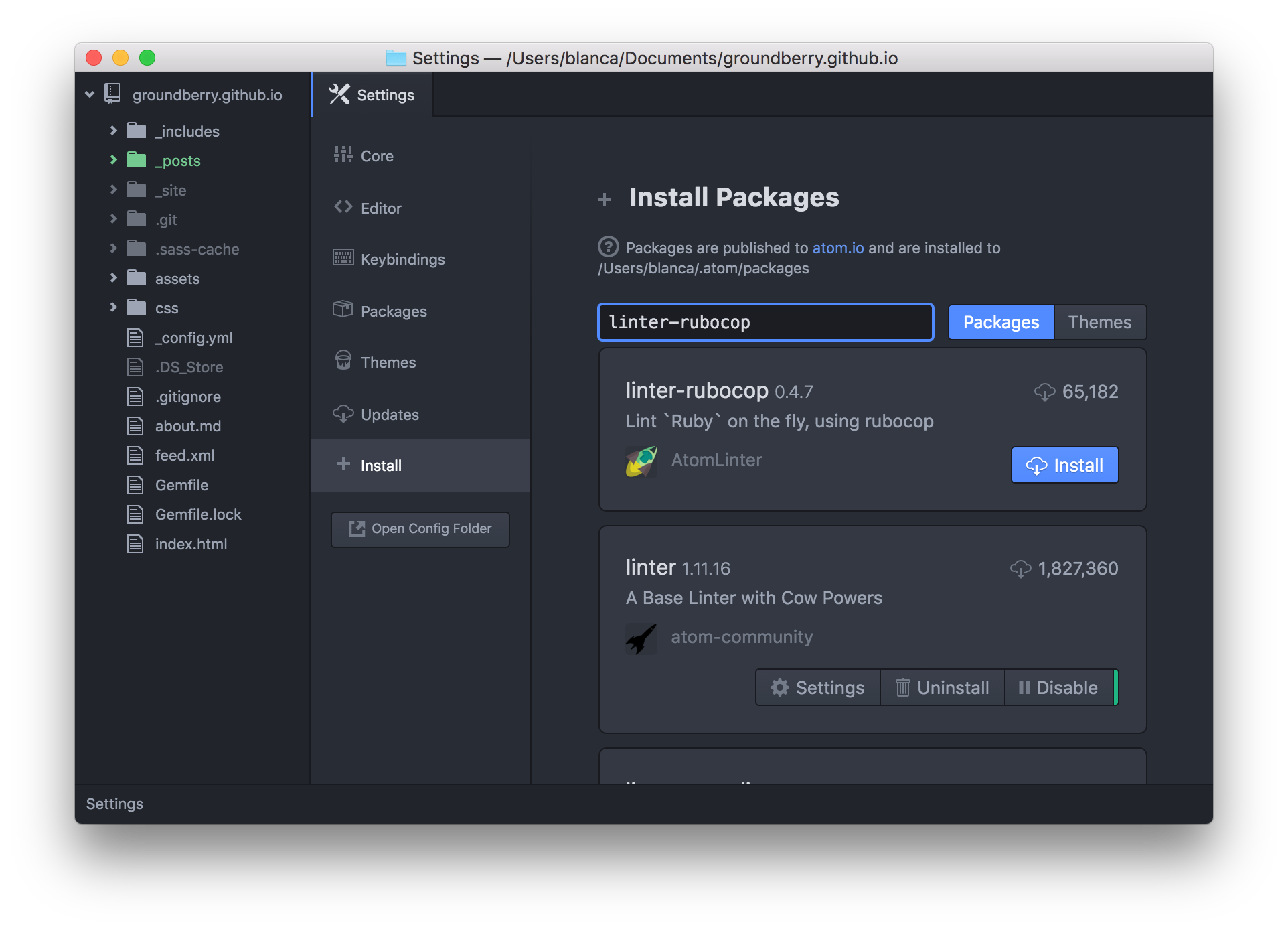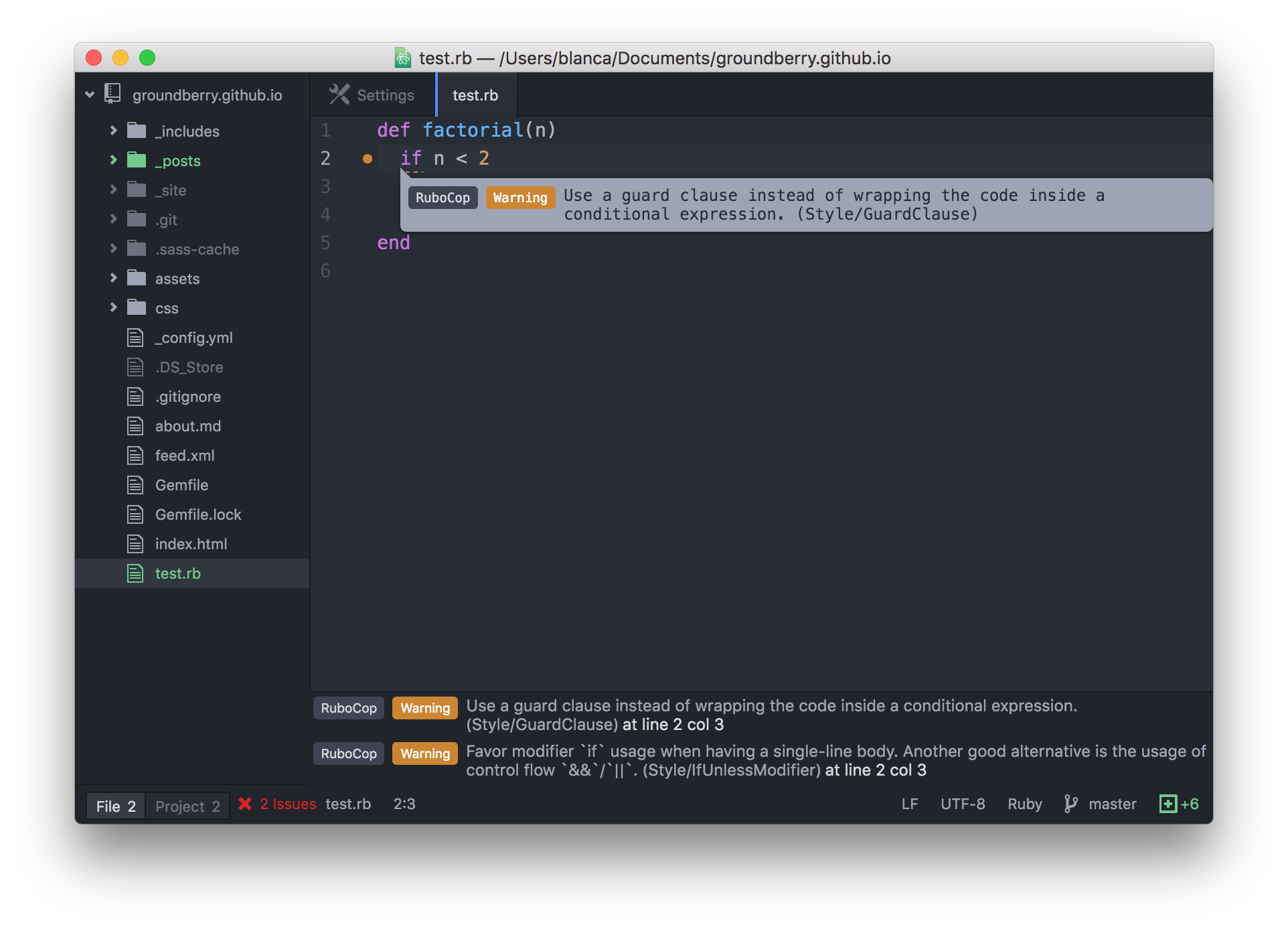A linter is a tool that goes through our code and identifies potential problems before we’ve even had the chance to run it.
Installing linter-ruby
The first linter we are going to install is linter-ruby. It’s pretty basic (it just runs our source through ruby -wc), but it can be useful to catch obvious syntax errors.
To install it, launch Atom, and click on the Atom > Preferences menu item (or press Cmd + ,). Navigate to the Install section, and search for linter-ruby. Now you just need to press the Install button:

We can see the linter in action here, as I forgot an end:

We didn’t need to execute our program to find the error. The linter caught it immediately!
Installing linter-rubocop
The second linter we are going to install is linter-rubocop. It enforces many of the guidelines outlined in the Ruby Style Guide, which I’ve found helpful in improving the readability of my code and preventing mistakes.
To install it, follow the same steps as with linter-ruby:

Here the linter suggests turning a single-line if statement into a guard clause, to avoid unnecessary nesting:

These suggestions help us internalise the guidelines, so that we continuously improve our code.